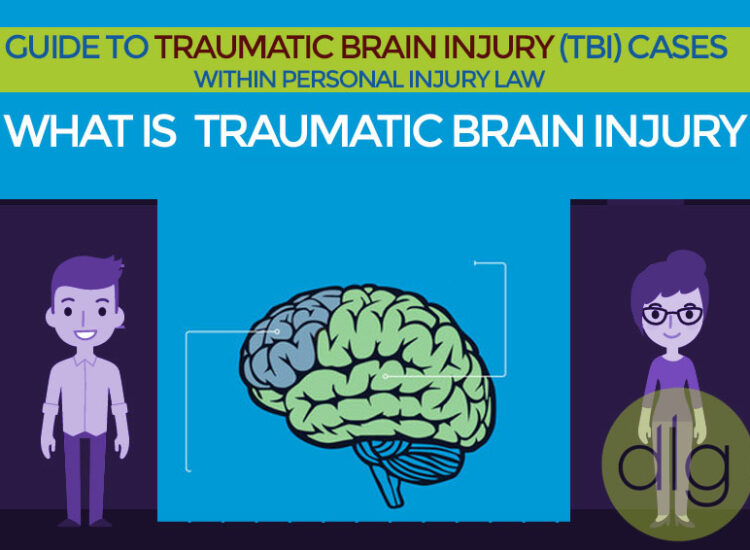Malpractice lawsuits can devastate a therapist’s career and finances. The cost of legal defense alone can be crippling, even if the claim is ultimately dismissed. Finding the best professional liability insurance is therefore crucial for mitigating these risks. This guide explores key factors to consider when selecting a policy, comparing providers, and navigating the complexities of coverage.
Toc
- 1. Understanding Your Professional Liability Insurance Needs
- 2. Key Features of a Robust Professional Liability Policy
- 3. Related articles 01:
- 4. Impact of Teletherapy on Professional Liability Insurance
- 5. Top Professional Liability Insurance Providers for Therapists
- 6. Finding Affordable Professional Liability Insurance
- 7. Related articles 02:
- 8. Highlighting Common Insurance Pitfalls
- 9. State-Specific Considerations for Professional Liability Insurance
- 10. Conclusion: Prioritizing Your Professional Protection
Understanding Your Professional Liability Insurance Needs

Professional liability insurance, often referred to as malpractice insurance, is essential for therapists due to the unique risks associated with their practice. Unlike general liability insurance, which covers physical damages or injuries occurring on a business’s premises, professional liability insurance specifically protects against claims of negligence, miscommunication, and breach of confidentiality related to professional services.
Therapists face various types of claims, including those stemming from perceived negligence or ethical violations. The consequences of not having adequate coverage can be severe, potentially leading to significant financial losses and irreparable damage to one’s reputation. Understanding these risks underscores the necessity of securing the best professional liability insurance tailored to your practice’s needs.
Key Features of a Robust Professional Liability Policy

When evaluating policies, therapists should focus on several critical features to ensure they select the best professional liability insurance.
Coverage Limits
One of the most crucial aspects of any insurance policy is its coverage limits. These limits dictate the maximum amount your insurer will pay in the event of a claim. Factors influencing the required limits include state regulations, the nature of your practice, and your years of experience. Selecting a policy with limits that reflect the potential risks specific to your field is essential to avoid financial hardship.
For example, a therapist with a high-risk specialty like trauma therapy might require higher limits than a therapist with a less risky practice. The average settlement for a malpractice claim against a therapist can vary widely depending on the jurisdiction and specifics of the case, but it’s not uncommon to see settlements in the tens or even hundreds of thousands of dollars. Therefore, choosing limits that reflect potential exposure is crucial. Some insurers offer policies with limits up to $1 million or more per claim.
Claims-Made vs. Occurrence Policies
Understanding the differences between claims-made and occurrence policies is vital for ongoing protection. Claims-made policies provide coverage for claims filed while the policy is active, while occurrence policies cover incidents that occur during the policy term, regardless of when claims are made.
A key difference lies in tail coverage. With claims-made policies, if you let your coverage lapse, you’ll need to purchase tail coverage to protect yourself against claims arising from incidents that occurred while the policy was active but are filed after the policy has expired. Occurrence policies offer ongoing protection without the need for tail coverage. The choice depends on your risk tolerance and long-term career plans.
Additional Coverage Options
Consider optional add-on coverages that can strengthen your policy. For instance, cyber liability insurance is increasingly relevant, as it protects against data breaches involving sensitive client information. Additionally, you may want to explore endorsements for specific types of therapy or services to ensure comprehensive protection tailored to your practice.
Claims Handling Process
The efficiency of the claims handling process can significantly affect your experience when a claim arises. Look for insurers with a reputation for responsive claims service, providing guidance and assistance throughout the process. This aspect can be a deciding factor when selecting the best professional liability insurance for therapists.
Impact of Teletherapy on Professional Liability Insurance
The rise of teletherapy has introduced new considerations for professional liability insurance. With the growing adoption of virtual counseling platforms, therapists must ensure their policies specifically cover teletherapy-related claims. Many traditional policies may not automatically include this coverage, so it’s essential to verify that your insurer supports telehealth practices.
Key risks associated with teletherapy include issues related to technology failures, client confidentiality breaches during virtual sessions, and navigating varying state laws regarding licensure and scope of practice. For example, if a therapist provides remote counseling to a client in another state, they must ensure compliance with that state’s regulations. Failure to do so could result in legal or regulatory challenges, which may not be covered by standard malpractice insurance.
Therapists should also review the types of technology covered under their policies. Data breaches or cyberattacks on teletherapy platforms may expose sensitive client information, leading to potential lawsuits. Adding cyber liability insurance as an endorsement can help address these gaps and protect your practice from such scenarios.
Ensuring your professional liability coverage is updated to reflect teletherapy practices is vital in today’s increasingly digital landscape. By working with an insurance provider familiar with these nuances, you can secure peace of mind while delivering care in this modern format.
Top Professional Liability Insurance Providers for Therapists

When seeking the best professional liability insurance, comparing various providers is crucial. Below, we review notable options relevant to therapists, including insights from HPSO insurance reviews and CPH insurance reviews.
HPSO Insurance Overview
HPSO (Healthcare Providers Service Organization) is a well-known provider of professional liability insurance tailored for healthcare professionals, including therapists. According to various HPSO insurance reviews, this provider is praised for its strong customer service and extensive resources, making it a popular choice among practitioners. Pros of HPSO include competitive pricing and comprehensive coverage options. However, some users have noted delays in claims processing, a consideration worth evaluating.
CPH Insurance Insights
CPH (Council on Professionalism in Healthcare) insurance is another key player in the professional liability market. CPH is well-regarded for its customizable coverage plans and strong emphasis on risk management. Many therapists appreciate their proactive approach to providing educational resources. However, some CPH insurance reviews, including those on Reddit, indicate that their premiums may be on the higher side, which can be a factor for budget-conscious practitioners.
Other Reputable Providers
While HPSO and CPH are leading options, several other providers cater to therapists’ needs. It is essential to explore additional companies that offer professional liability insurance, taking into account factors like pricing, customer service, and coverage options. Resources such as Reddit discussions on the best malpractice insurance for therapists can provide valuable insights. Be sure to investigate the best professional liability insurance in the USA and the best professional liability insurance in California for tailored options based on your location.
Finding Affordable Professional Liability Insurance
Cost is a significant concern for many therapists when searching for the best professional liability insurance. However, it is crucial to strike a balance between cost and quality coverage. While budget constraints are a reality for many practitioners, selecting the cheapest option is not always advisable.
However, some argue that prioritizing comprehensive coverage over affordability can be financially unsustainable for therapists, especially those starting their practices. They might advocate for choosing a policy with lower limits initially and increasing coverage as their practice grows and their income increases.
Strategies for Finding Affordable Insurance
Finding affordable yet comprehensive insurance can feel daunting, but with the right approach, it’s absolutely achievable. Start by comparing quotes from multiple providers to identify competitive rates—many insurance companies offer online tools or apps to make this process easier. Don’t forget to explore group discounts or professional associations that may provide reduced premiums for members, as these can significantly lower your costs. For example, therapists might find benefits through industry-specific groups or unions that have negotiated better rates for malpractice insurance. Also, take the time to carefully assess your actual coverage needs. Avoid paying for features or add-ons you don’t need, but ensure your policy still provides essential protections, like liability coverage or specialized endorsements, to get the best value without compromising on what matters most.
Balancing Cost and Coverage
While keeping costs low is important, it’s crucial to remember that the cheapest option isn’t always the best. Skimping on coverage can leave you exposed to significant risks down the line. Instead, aim to strike a balance by weighing the benefits of comprehensive coverage against premium costs. For instance, consider how much liability protection you truly need in light of your professional practice or personal situation. Negotiating premiums is another way to save—leveraging your claims history, maintaining a solid credit score, or bundling policies together can help reduce costs. It’s also worth asking insurers about discounts for things like safe driving records or loyalty programs. Finally, engaging with communities or forums, such as Reddit, can provide useful insights from others who have navigated similar challenges. This is especially helpful for niche needs, like finding the most affordable malpractice insurance for therapists, where shared experiences can guide you to the best providers and strategies.
Highlighting Common Insurance Pitfalls
When it comes to professional liability insurance, it’s important to be aware of common pitfalls that can hinder your coverage and financial protection. Understanding and avoiding these pitfalls will help ensure that you have the most comprehensive and suitable insurance policy for your specific needs. Here are some common insurance pitfalls to watch out for:
- Insufficient Coverage Limits: It’s crucial to evaluate your coverage limits carefully. Inadequate coverage limits may leave you exposed to significant financial risks in the event of a claim or lawsuit. Assess your professional risks and consult with insurance experts to determine appropriate coverage limits that adequately protect your assets and reputation.
- Failure to Disclose Relevant Information: Providing accurate and comprehensive information when applying for insurance is vital. Failing to disclose relevant details about your profession, services, or any past incidents can result in coverage denial or policy cancellation. Be transparent and forthcoming during the application process to ensure that your policy accurately reflects your needs.
- Not Reviewing Policy Exclusions: Carefully review the policy exclusions to understand what is not covered by your insurance. Certain risks or services may be excluded, and it’s important to assess whether additional coverage or endorsements are necessary to fill those gaps.
- Neglecting Regular Policy Reviews: Your insurance needs may evolve over time, so it’s crucial to review your policy periodically. Changes in your profession, scope of practice, or regulatory requirements may impact your coverage requirements. Regularly reassess your policy to ensure that it aligns with your current circumstances and adequately protects you.
- Failing to Seek Professional Guidance: Insurance can be complex, and it’s easy to overlook important details or misunderstand policy terms. Seeking guidance from insurance professionals or brokers who specialize in your industry can provide valuable insights and ensure that you make informed decisions regarding your coverage.
By being aware of these common insurance pitfalls, you can make more informed choices when selecting your professional liability insurance and safeguard your financial well-being. Remember, thorough research, clear communication, and regular policy reviews are key to navigating the insurance landscape effectively.
State-Specific Considerations for Professional Liability Insurance
Understanding state-specific regulations and requirements is paramount when selecting the best professional liability insurance. Licensing requirements can significantly impact insurance needs, as can variations in malpractice insurance regulations across different states.
Researching state-specific mandates before purchasing a policy is essential. For example, therapists in California must navigate unique licensing requirements and malpractice insurance regulations. Ensuring compliance and adequate protection tailored to your practice’s location can prevent potential legal pitfalls.
Conversely, some therapists might argue that focusing too heavily on state-specific regulations can lead to over-insurance and unnecessary costs, especially if their practice operates primarily online and serves a diverse geographic client base. They might advocate for selecting a policy that offers broader coverage across multiple states, even if it doesn’t perfectly align with every state-specific regulation.
Conclusion: Prioritizing Your Professional Protection
In conclusion, securing the best professional liability insurance is a crucial step for therapists. By understanding your specific needs, comparing coverage options, and evaluating providers, you can select a policy that safeguards your career and financial future. Protecting your practice against the inherent risks of the therapeutic profession is paramount. Take the necessary steps today to ensure you have the right coverage in place, and don’t hesitate to explore resources that can guide you in finding the best professional liability insurance for your practice.










